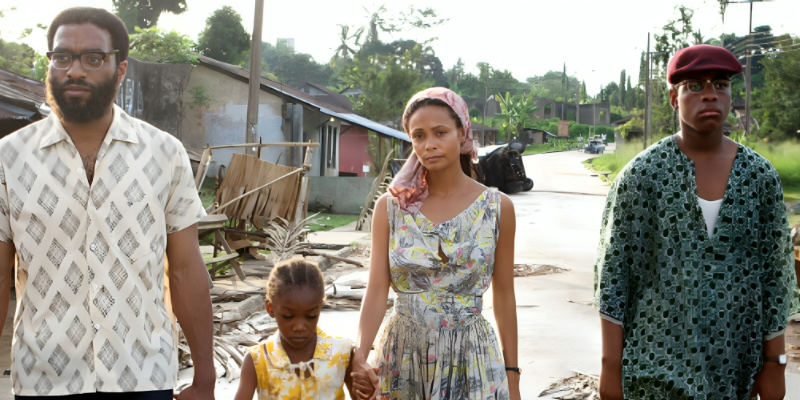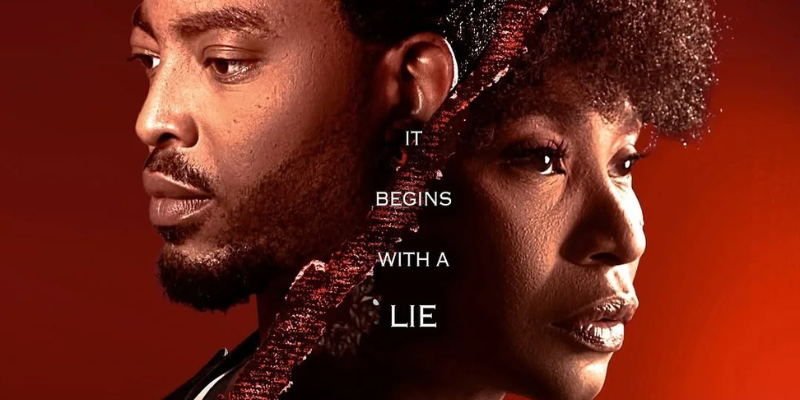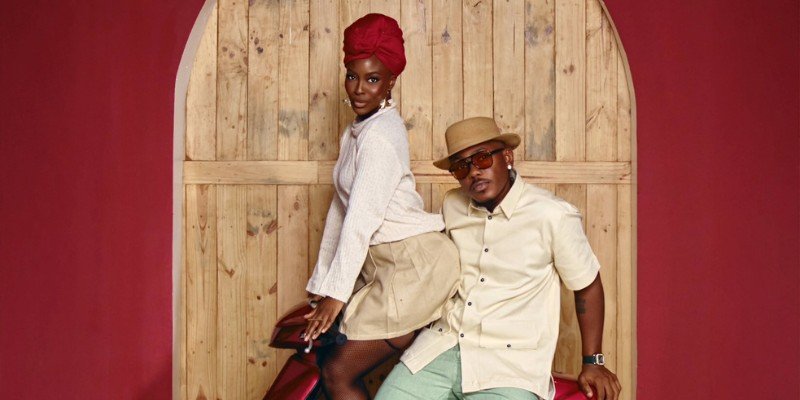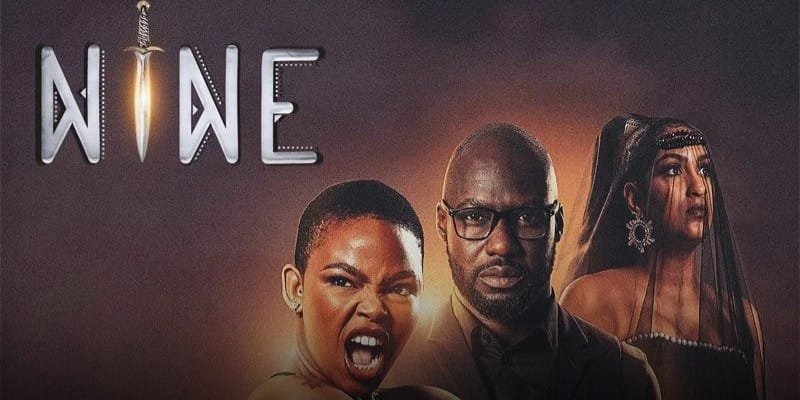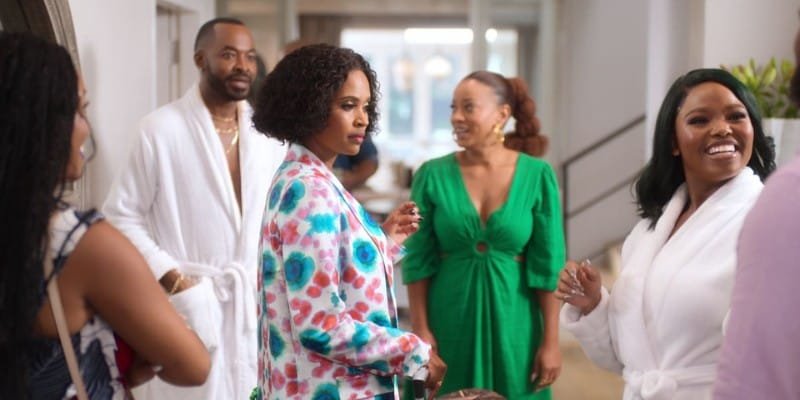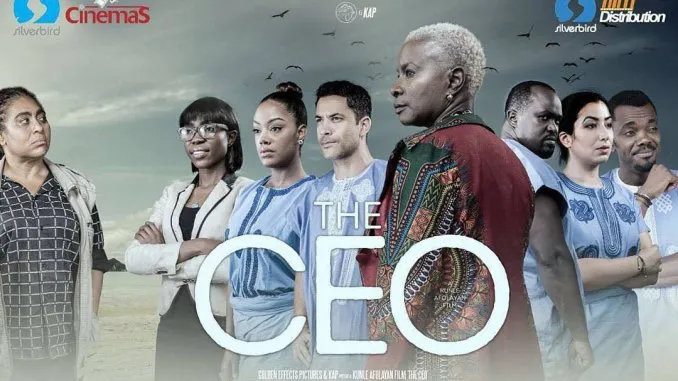Nollywood has been on a roll, and it’s not just about original screenplays anymore. The industry is increasingly turning to the rich tapestry of Nigerian literature for inspiration, adapting compelling novels into films and series that resonate with audiences both locally and globally.
These adaptations not only pay homage to the original works but also bring fresh perspectives and a broader reach to the stories.
Let’s explore five notable Nollywood adaptations that have successfully transitioned from the pages of books to our screens.
Swallow (2021)
Original Work: Swallow by Sefi Atta (Published: 2010)
Director: Kunle Afolayan
Cast: Niyola (Tolani), Deyemi Okanlawon, Chioma Chukwuka Akpotha, Ijeoma Grace Agu
Plot Overview: Set in 1980s Lagos, Swallow follows Tolani, a bank clerk grappling with workplace harassment and societal pressures. When her friend Rose turns to drug trafficking, Tolani faces a moral dilemma that tests her values and aspirations.
Adaptation Insights: The film captures the essence of Lagos in the ’80s, with meticulous attention to period details. While Niyola brings a certain freshness to the role, her portrayal lacked the depth and emotional range required to fully embody Tolani’s internal struggles.
While the film remains faithful to the novel’s central themes, certain subplots and character developments are either condensed or omitted. Take Rose’s Backstory for example, The novel delves deeper into Rose’s motivations and past experiences, providing context for her choices. The film, however, offers a more surface-level portrayal, which might leave viewers questioning her rapid descent into drug trafficking.
Also, the cinematic version, constrained by runtime, occasionally glosses over these internal monologues, relying instead on visual cues that may not fully convey her turmoil.
Smart Money Woman (2020)
Original Work: The Smart Money Woman by Arese Ugwu (Published: 2016)
Director: Bunmi Ajakaiye
Cast: Toni Tones, Ini Dima-Okojie, Osas Ighodaro, Ebenezer Eno
Plot Overview: This series chronicles the lives of five women in Lagos as they navigate careers, relationships, and financial challenges, emphasising the importance of financial literacy and empowerment.
Adaptation Insights: The series effectively translates the book’s financial lessons into relatable storylines, making complex financial concepts accessible through engaging narratives. While the series stays true to the novel’s core message, certain aspects could have been better executed. The book’s practical financial tips are sometimes overshadowed by the series’s focus on drama and glamour, potentially diluting its educational impact. Some subplots, such as Ladun’s personal struggles, are underexplored, leaving gaps in character arcs. Although the ensemble cast delivers compelling performances, some viewers noted that certain plotlines could have been more thoroughly explored.
The Wait (2021)
Original Work: God’s Waiting Room by Yewande Zaccheus (Published: 2005)
Directors: Yemi Morafa and Fiyin Gambo
Cast: Nse Ikpe-Etim, Deyemi Okanlawon, Ini Dima-Okojie, Kate Henshaw, Joke Silva
Plot Overview: The Wait delves into the emotional journeys of couples facing infertility, highlighting their struggles, faith, and the societal pressures they endure.
Adaptation Insights: The film sensitively portrays the emotional complexities of waiting and hope. While it captures the core themes of the book, some viewers felt that the narrative could have delved deeper into individual backstories to enhance emotional resonance. The multiple storylines, while reflective of the book’s themes, sometimes lack sufficient depth, leading to a fragmented viewing experience.
Half of a Yellow Sun (2013)
Original Novel: Half of a Yellow Sun by Chimamanda Ngozi Adichie (2006)
Director: Biyi Bandele
Cast: Thandiwe Newton, Chiwetel Ejiofor, Anika Noni Rose, John Boyega, Joseph Mawle, Genevieve Nnaji, Onyeka Onwenu.
Plot Overview: Set during the Nigerian Civil War (1967–1970), the story follows twin sisters, Olanna and Kainene, and their intertwined lives with Odenigbo, a revolutionary professor; Richard, a British writer; and Ugwu, a young houseboy. The narrative delves into themes of love, loyalty, and the devastating impacts of war.
ADAPTATION INSIGHTS: The film captures the essence of the novel’s historical context and emotional depth. However, it struggled to convey the novel’s intricate character development and political nuances fully. The performances, particularly by Newton and Ejiofor, were very impressive, but the film faced challenges in translating the book’s layered narrative to the screen. While the film received mixed reviews, it was noted for bringing Nigerian history to a broader audience.
Elesin Oba: The King’s Horseman (2022)
Original Play: Death and the King’s Horseman by Wole Soyinka (1975)
Director: Biyi Bandele
Cast: Odunlade Adekola, Shaffy Bello, Olawale Ibrahim Ashimi, Deyemi Okanlawon, Omowunmi Dada, Jide Kosoko, Taiwo Ajai-Lycett, Joke Silva.
Plot Overview: Rooted in a true historical event, the narrative centres on Elesin, the king’s horseman, who is expected to commit ritual suicide to accompany the deceased king to the afterlife. The story unfolds as colonial authorities intervene, leading to cultural clashes and tragic consequences.
Adaptation Insights: This adaptation stands out for its commitment to authenticity, notably through its Yoruba-language presentation. The film delves deep into Yoruba traditions and the tensions introduced by colonial interference.
These adaptations highlight Nollywood’s evolving landscape, where literature and cinema intersect to tell stories that are both culturally rich and universally relatable. By bringing these narratives to the screen, Nollywood not only honours the original works but also introduces them to new audiences, ensuring that these stories continue to inspire and entertain.







